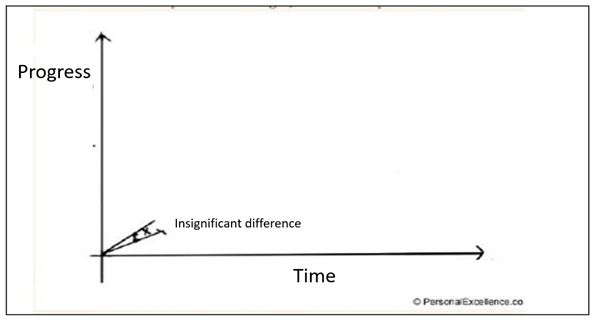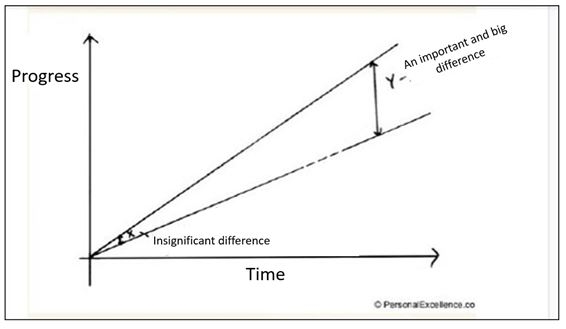5 Lies about Procrastination We Fool Ourselves With
Over the years, as I've worked with clients to break their procrastination habits, I've discovered five common lies we tell ourselves to justify our procrastination.
Note: This article is taken from writer and blogger Celestine Chua, in which she talks to us about five lies and excuses we tell ourselves to justify procrastination in our lives, and how to get rid of each of them.
I've referred to them as lies because they are so frequently false or inaccurate and serve only as justifications for our procrastination. So, let’s find out if any of the lies below deceive you.
5 Lies about Procrastination We Fool Ourselves With:
1. Lie No.1, “I Will Do It Later or Tomorrow,” or “I Am Too Busy to Do This:”
This is the most common lie we tell ourselves to postpone our big dreams and goals, and then come tomorrow, we forget all of them. A year would quickly pass without us making any progress in our lives. In 2007, one year after starting my job, I finally realized this. I already knew in 2006 that I wanted to pursue a career in the field of personal or self-development, but I kept telling myself that I would do it later because of my busy schedule at my corporate job.
Soon, a year had passed, and the 2007 holiday season had arrived. While everyone else in the company was on vacation, I was among the few who spent the holiday at work, so I took the time to reflect on my own life and goals. However, I didn't get great or even good results. That year, despite working extremely hard, pushing myself, and working late nights and weekends, I discovered I wasn't making any progress toward my passion. This is because my daily job at the company consumes all of my energy.
I got frustrated and disappointed and began imagining what the future would be like if I continued to work that way. As a result, I discovered that my future life wouldn't be all that different from my present one. Even though I will have improved and developed my career, I will not have made any strides or improvements in my passion and work that I love.
I was so horrified and shocked that the life I had imagined was so dissimilar from the ideal one I desired. Instead of growing myself in a daily job I didn't like, I wanted to pursue my passion to change the world and have a significant impact on the lives of the people around me. That's when I realized that unless I made the time to follow my passion, nothing would ever change or happen in my life; instead, by delaying action for one day, I was delaying the realization of my dreams and goals for another day. So I gradually started planning for my passion and began by mailing my resignation letter from my job at the company in July 2008. I worked there until September 30 of that same year. Then, in December, two months later, I started my blog, and what followed is well known.

The majority of you probably already believe that saying "I will do it tomorrow or later" is perfectly acceptable and justified, especially when you're extremely busy. However, the reality is that if you have been putting off a task or failing to reach a particular goal, it is likely that you will keep doing so unless you make significant adjustments to your environment, habits, and way of thinking. Therefore, in order for the desired change to take place in your life, you must complete the tasks and obligations entrusted to you.
In reality, "later or tomorrow" is a proverbial time that never comes, so consider how to begin working toward your goals right away rather than postponing them. Instead of waiting until tomorrow or later to start working toward your goals, this is the way to make it possible for you to do so.
2. Lie No.2, "It's Better to Do Things at the Last Minute":
Some people believe that waiting until the very last minute to complete tasks makes them feel pressure, urgency, and determination, which encourages them to finish these tasks. They believe that by doing this, they will be able to complete their tasks more quickly and effectively, but the problem with this strategy is that it results in numerous unanticipated losses, such as:
- Wasting valuable time ineffectively by procrastinating that could have been used more productively.
- Unnecessary stress that is brought on by procrastinating tasks. Even though you decide to postpone the task, you still occasionally think about it, which makes you more anxious than you would have been if you had done it right away.
- Your final productivity payoff is typically lower than what you are capable of because you have so little time to complete your task.
For example, there have been many times in the past when I put off doing my work only to find myself scrambling from one task to another in the final days or hours before a deadline. In addition to making me feel overly stressed and anxious and contributing to the development of a binge eating disorder, this caused me to produce only 70-80% quality work compared to the complete and perfect work that I could have done with more time.
I couldn't help but manage my tasks with the little time I had left because I was finishing my work at the last minute. Examples of this include studying right before an exam, which results in poor grades, or preparing for presentations right before they are due, which results in good presentations but not as excellent as they could have been if I had prepared them earlier.
I learned from these facts and experiences that it is very beneficial to be proactive and start working early, and that putting off implementation until the very last minute is very bad. As a result, I became a diligent learner who studied the lessons even before getting them, which enabled me to get the best grades. In the field of speaking and training, I am now managing my affairs, planning ahead, and dedicating more than enough time to get ready, prepare, and train in case any problems or issues occur. Contrary to the panic and frenzy that accompany last-minute procrastination, early task completion has greatly improved my well-being and allowed me to produce or deliver work of excellent quality.
However, there is one exception to this rule, as it is actually best to wait until the last minute for less important tasks. By doing this, you'll be able to finish the task faster, rather than letting procrastination defeat you and waste your time. There is nothing wrong with rushing through a task if it is of low importance or value, even if you lack the time to complete it perfectly and correctly. The amount of effort and time you put into a task should be equal to its importance to you. There is no need to spend a lot of time on a task if it is of little importance, which is what I refer to as purposeful or deliberate procrastination.
Leaving things until the last minute can take a toll. It is very beneficial to get the tasks done and work on the goals that are important to you as early as possible without delaying them. Therefore, if you have been delaying and postponing achieving your biggest dreams and goals, it is time to stop and give them top priority in your life.
3. Lie No.3, "Postponing Tasks for a Day or a Week Won't Make Any Difference":
In the long run, delaying a task by one day does not make a huge difference. The problem is not that you postpone a task for one day, but rather the number of days you postpone your task in the first place and the number of days you will continue to put off your task after it, which are undoubtedly many, regardless of how many times you tell yourself that it is the last day of procrastination. As you can see, when we promise ourselves that we will postpone a task for one day, it may seem insignificant to us because it only lasts for one day, but repeated attempts to do so over time quickly turn into habits that have a major negative impact on our lives.
Consider the chart below, which illustrates the differences between performing a few extra actions each day and not doing so over a brief period:

The X in the chart represents the difference between performing a few extra actions and not doing so. As you can see, this difference is insignificant and of no value, so it is not surprising that the majority of us choose to procrastinate completing our work until tomorrow because a one-day delay will not make such a difference.
However, when this daily, gradually increasing action is repeated over time, you can see the difference in the following chart:

The Y symbol in the above chart illustrates how the difference from daily action increases very quickly over the long term. It suddenly becomes clear that everything we do on a daily basis, from the simple decisions we make to the time we invest in setting and achieving our goals, has a significant impact on our personal development and long-term success.
The truth is that whenever you delay working toward one of your goals or dreams, you postpone the realization of that dream or goal. Even though delaying something for a day or a week may seem insignificant today, it has a huge impact that could ultimately change your life in the long term.
4. Lie No.4, "Procrastination is Ingrained Within Me":
Some of my friends frequently tell me this lie, saying that procrastination is a natural part of who they are and that there is nothing they can do to stop it. The good news is that it is possible not to use procrastination in our daily lives, but the bad news is that it is impossible to stop procrastinating as long as you believe it is within you.
As for me, I've procrastinated excessively on tasks in the past. I found studying to be boring, so I would do my homework and other assignments at the last minute and fall asleep during class. Also, I used to study and get ready for exams at the last minute, to the point where I would occasionally read chapters of a textbook for the first time the day before an exam. I hated school so much and felt like quitting it at some point. The most significant or notable event was the visit of my relatives to my house one morning and their attempts to coerce me out of bed to go to school because I refused to do so.

However, throughout my life, things have changed, and it wasn't because I had a vision in my dreams; rather, it was just a simple realization that I was wasting my life in vain and that I needed to take control of my life, my education, and myself. I could always stop studying and take responsibility for my decision if I hated it that much. However, doing so would undoubtedly incite anger and harsh criticism from my family, friends, and the people in my community. But in the end, nobody forced me to study; I had the freedom to decide. I decided to complete my studies and stop procrastinating, and this marked one of the significant turning points in my life.
Just like other personality flaws such as impatience, lack of tact, shyness, and pessimism, procrastination can be eliminated. I often say that we are all naturally positive, intelligent, enthusiastic, and impulsive beings. The only reason we become negative, pessimistic, hesitant, confused, and lacking enthusiasm and motivation is that we become confused and disoriented by flawed thinking patterns and restrictions or controls over prevailing circumstances that disrupt our thinking, create chaos in our lives, and prevent ourselves or our true nature from appearing. Therefore, the solution is to take action to address these causes and eliminate them because, once done, everyone in the world will be inspired and motivated to achieve their goals naturally and effortlessly.
Procrastination can actually be overcome and permanently eliminated, just like other personality flaws like lack of tact, shyness, and pessimism. However, this can only be done by first understanding the causes of your procrastination and then addressing and overcoming these causes.
5. Lie No.5, "Only When I Have Enough Free Time, I Can Do This":
Because we think we need enough free time before we can complete a task that requires a lot of work and effort, many of us frequently postpone it. Even though it makes perfect sense in theory, it is challenging to achieve in practice.
In addition to the 68 articles that I wrote for my own blog during the second year of my blogging career, I also wrote more than 40 articles for other blogs. This means that I wrote 108 articles in total that year, or more than two articles per week. That was a significant number of articles that I consistently produced because, in addition to writing them, I was also coaching my clients, participating in debates, managing my own business, and marketing and promoting myself.
I didn't accomplish all of this by waiting until I had enough free time, but rather by making the most of every spare minute. For example, I would immediately open the text editor on my mobile phone to start writing a new article for my blog whenever I was standing in line for public transportation or while I was taking the bus or train. A good quality article requires at least a few hours to write, so I never set out to finish it in one sitting. Instead, I tried to write as much as I could and would finish it throughout the following few minutes I would invest. By smartly investing those 5-10 minutes of wasted time, I was able to complete a lot of work per week, not by waiting for free time in my life.
The truth is that waiting for your free time will never allow you to finish your work or reach your goals. It's about making the most of every opportunity to accomplish your most important goals and wisely investing every lost minute in your day so that you can advance quickly in life.